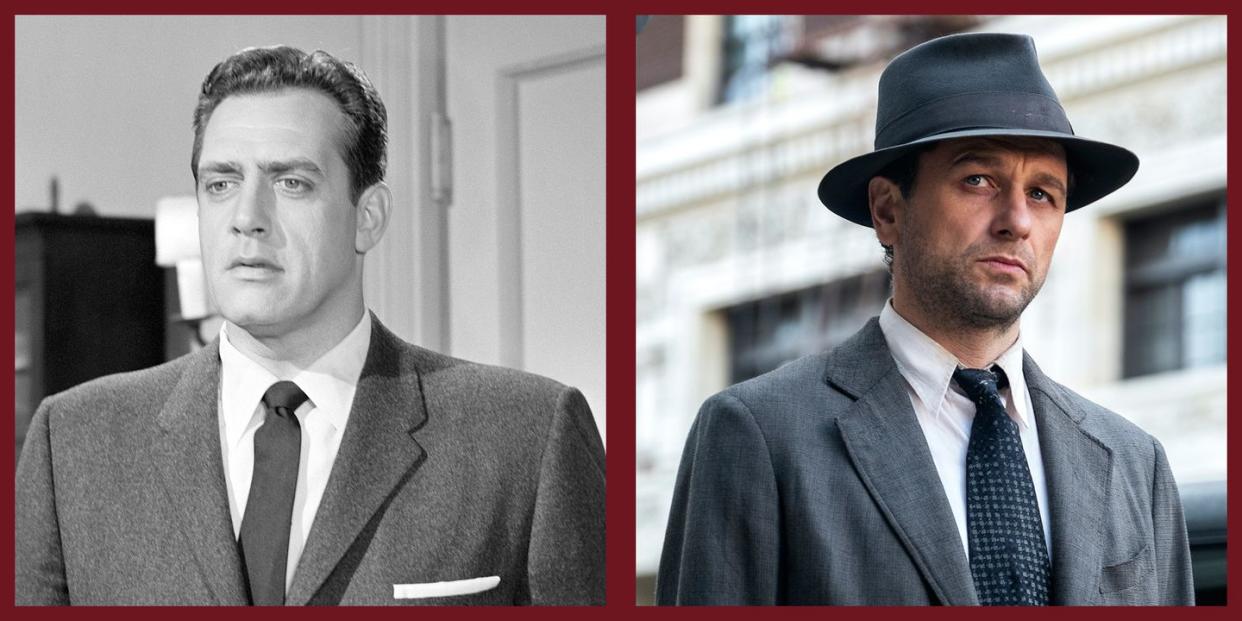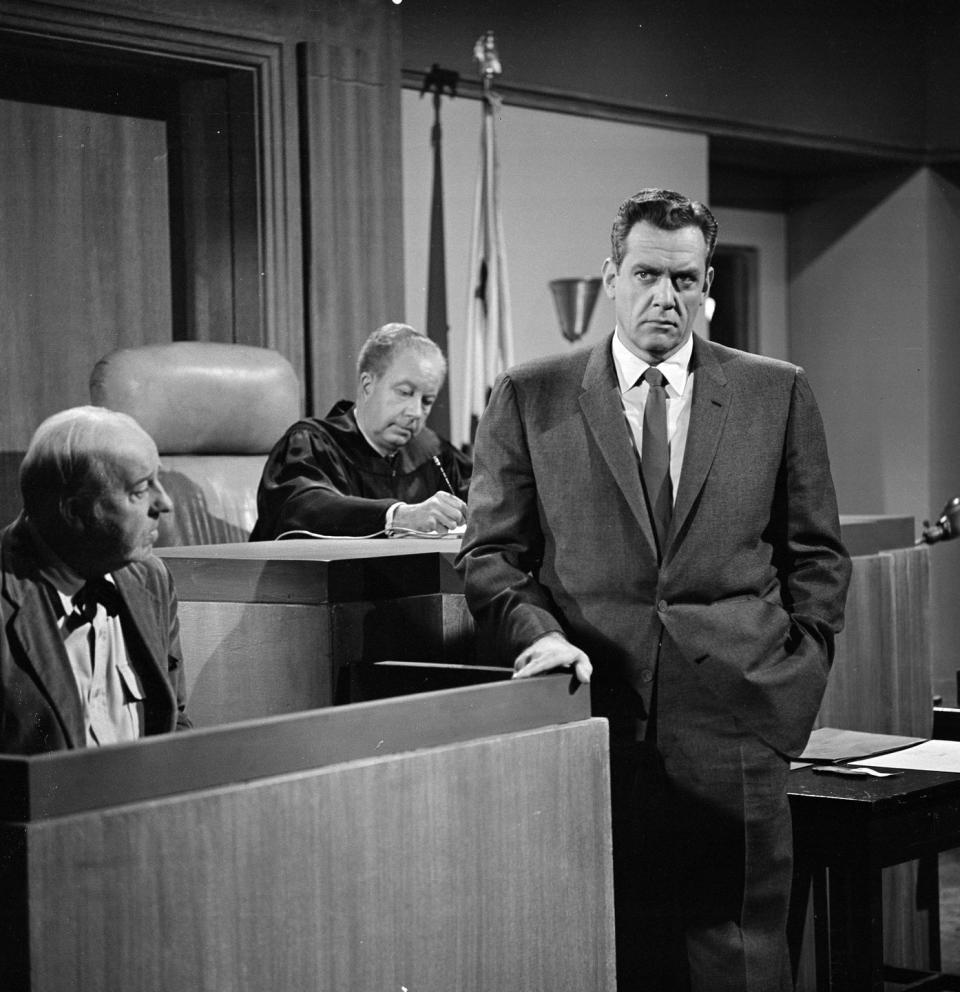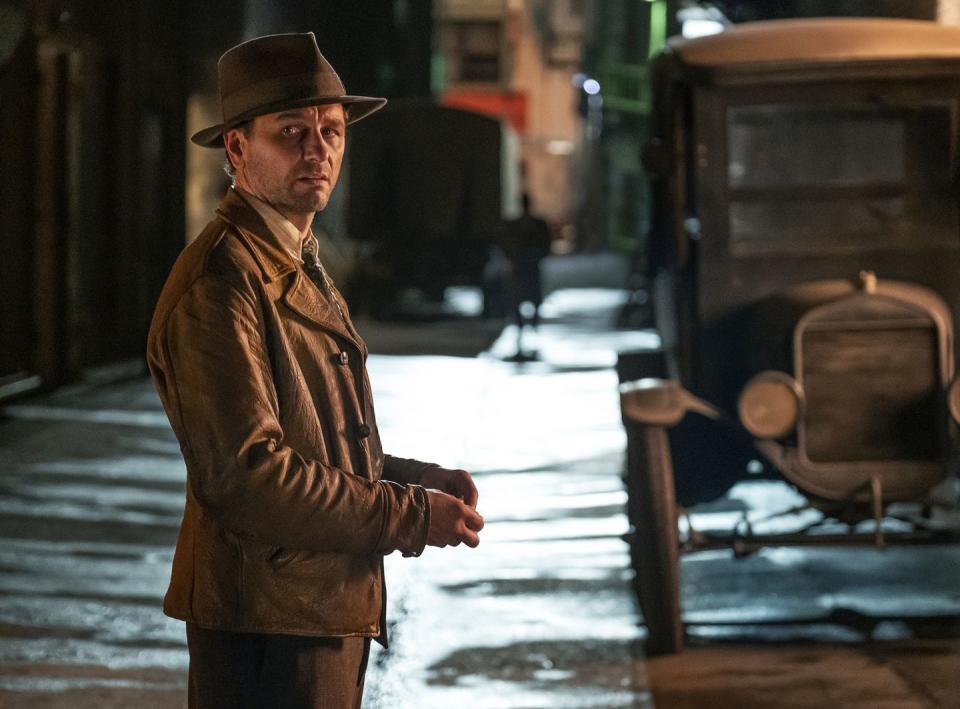'Perry Mason' Was the Original 'Law & Order'

“Perry Mason is the show that launched a thousand shows,” says Ron Fitzgerald. “Every courtroom drama you’ve ever seen comes from that Perry Mason template.”
Fitzgerald should know: He’s one of the creators (as well as a writer and executive producer) of a new Perry Mason series, a dark, stylish reboot airing now on HBO. While the new series eschews the courtroom procedural style made famous by the Perry Mason that aired on CBS from 1957 through 1966—as well as various sequels and TV movies that followed—Fitzgerald and his co-creator Rolin Jones have nothing but appreciation for what the original show, which was based on the bestselling novels by Erle Stanley Gardner, did for American television.

That Perry Mason created a template that’s been followed by everything from Law & Order to Ally McBeal and The Good Fight: lawyers, usually complicated but decent, face a different case each episode and, if all goes well, wrap things up tidily before the credits roll. It’s a comforting, familiar treatment for audiences and has been a formula for plenty of hits over the years, but it wasn’t what Fitzgerald and Jones (who created the series alongside Susan and Robert Downey Jr.) wanted to give to a modern audience.
“It was revolutionary TV for the time and was like a giant shot of adrenaline,” Jones says. “But we had no interest in repeating that because they already did it so well. There was a pathway to revive this for the here and now.”

That means that the new series, which stars Matthew Rhys as Mason, doesn’t solve one specific crime each episode and there’s little in the way of the witness-stand gotcha moments that actor Raymond Burr made famous. This time around, Perry Mason follows the arc of one crime—the abduction and gruesome murder of a young boy—throughout an entire season and looks at the various characters it touches in a dark, hardened 1930s Los Angeles. When we meet Rhys’s Mason, in fact, he’s working as more of a private investigator than a lawyer—and he’s a much more complicated and troubled character than Burr’s ever was.
“It wasn’t a huge leap,” Jones says. “When you start reading the novels, the guy doesn’t appear in court for the first three books. He was a fixer; he was an attorney in these books, but he doesn’t have a lot of money so he’s out there doing the work himself. So, why not show up two years beforehand and see what’s there?”
Fitzgerald adds, “The first novel starts with a knock on his door, and he’s already Perry Mason, a lawyer about town feared by cops and ne’er-do-wells alike. We wanted to step back and figure out how he becomes this guy.”
Gardner’s books, which started publishing in 1933 and still rank just behind the Harry Potter and Goosebumps series in sales numbers, made for an inspiring jumping off point. “We realized we could go back to the source material and do a Chinatown sort of thing—we didn’t have to remake the black-and-white Raymond Burr series,” Fitzgerald says. “It became interesting because it tapped into my love for [the novels of] Raymond Chandler and Dashiell Hammond.”
The series of books, which were published for 40 years, also offered seemingly endless ways for the series to develop. “There’s so much great stuff in these books, and in the other pulp fiction we read from the Erle Stanley Gardner universe,” Jones says. “Knowing we wanted multiple seasons of this show, we tried to take dogmatic ideas about justice and the nature of men and use those as tentpoles to think about how a guy comes around to those ways of seeing things.”
Despite shifting the way Mason’s story is told and giving the series a breath of new life, there are some things about the character that have always been important, and that Jones and Fitzgerald wouldn’t think about changing. “It’s the ur-television show for all of the crime dramas out there, and it’s astonishing the legacy that the series has, especially in terms of form and structure,” Jones says. “We’re doing a serialized show, so it’s slowed down in a sense, but what’s timeless about it is that there’s a guy who’s trying to hold up a mirror to the world and say there are people who need someone to fight for them. There’s always a need for Perry Mason, and at this particular time, someone standing up for people who don’t have a voice feels like it might be the perfect thing.”
You Might Also Like

